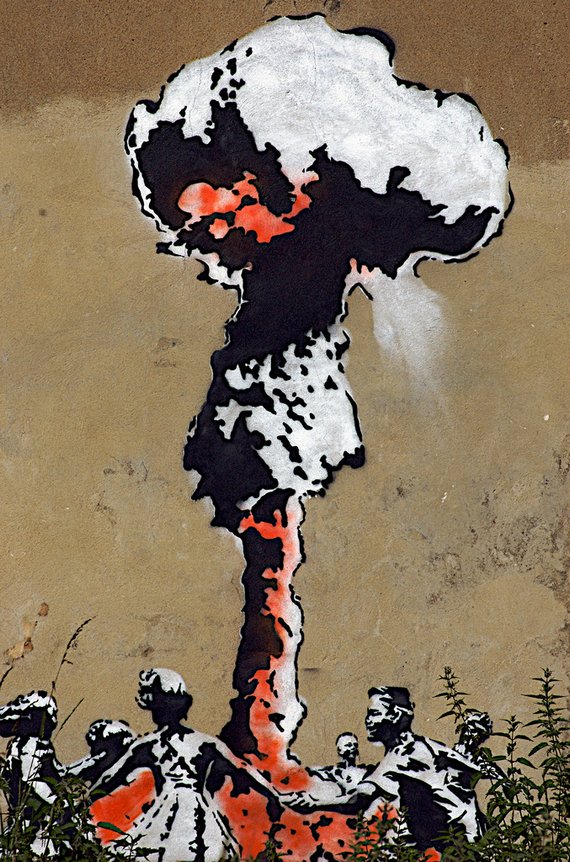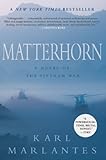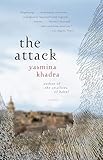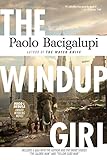
These are troubled times. The news cycles have seemed particularly dark lately. Knowing that times have always been troubled — was there ever a generation that didn’t suffer from the creeping suspicion that everything’s kind of going to hell? — provides limited solace.
There are always distractions, of course, but sheer escapism is too easy. I’d like to propose something more along the lines of semi-escapism. All of the following books are works of fiction, but there are moments, I’ve found, when fiction conveys nearly as much about the world we find ourselves in as the news does. With that in mind, a reading list:
1. The illegal arms trade
The Night Manager, by John le Carré
 Jonathan Pine is an Englishman, a night manager at an expensive Zurich hotel, a man of supreme competence who has worked his way up to the highest strata of his profession. He formerly held the same position at a grand hotel in Cairo, until an indiscretion on his part cost a woman her life; a hotel guest entrusted him with documents detailing transactions between her wealthy Egyptian boyfriend and an arms dealer, Richard Roper, whom she described to Pine as “the worst man in the world.” Pine passed these documents on to a British spy, one of the arms dealers received a call from an interested party in London, and a short time later the woman was murdered. Pine had loved her.
Jonathan Pine is an Englishman, a night manager at an expensive Zurich hotel, a man of supreme competence who has worked his way up to the highest strata of his profession. He formerly held the same position at a grand hotel in Cairo, until an indiscretion on his part cost a woman her life; a hotel guest entrusted him with documents detailing transactions between her wealthy Egyptian boyfriend and an arms dealer, Richard Roper, whom she described to Pine as “the worst man in the world.” Pine passed these documents on to a British spy, one of the arms dealers received a call from an interested party in London, and a short time later the woman was murdered. Pine had loved her.
Less than a year later, the worst man in the world arrives with his entourage at the hotel in Zurich, and Pine is presented with an opportunity for revenge. Is this a spy novel? It is, but also it’s a literary exploration of identity, love, and desperation, because this is after all le Carré we’re talking about, and Pine is one of the most fully rendered and fascinating characters I’ve ever come across in fiction.
2. War
Matterhorn, by Karl Marlantes
 A Vietnam War novel that deserved even more attention than it received. Second Lieutenant Waino Mellas arrives in Vietnam as an Ivy League-educated reservist, an aspiring politician hoping to collect a medal or two, in charge of a company composed mostly of teenagers. The novel is part portrait of a company working under impossible conditions, part chronicle of Mellas’s transformation in a world of meaningless butchery, terror, and terrible mismanagement. I think Matterhorn is a masterpiece, and I don’t throw that word around very often.
A Vietnam War novel that deserved even more attention than it received. Second Lieutenant Waino Mellas arrives in Vietnam as an Ivy League-educated reservist, an aspiring politician hoping to collect a medal or two, in charge of a company composed mostly of teenagers. The novel is part portrait of a company working under impossible conditions, part chronicle of Mellas’s transformation in a world of meaningless butchery, terror, and terrible mismanagement. I think Matterhorn is a masterpiece, and I don’t throw that word around very often.
3. Terrorism
The Attack, by Yasmina Khadra
 Dr. Amin Jaafari is an Israeli citizen of Arab descent, a distinguished surgeon at a hospital in Tel Aviv. His wife, Sihem, is also an Israeli Arab. They are educated, cultured, and sophisticated people, who count the crème-de-la-crème of Israeli society among their close friends and entertain them in their beautiful home.
Dr. Amin Jaafari is an Israeli citizen of Arab descent, a distinguished surgeon at a hospital in Tel Aviv. His wife, Sihem, is also an Israeli Arab. They are educated, cultured, and sophisticated people, who count the crème-de-la-crème of Israeli society among their close friends and entertain them in their beautiful home.
Jaafari’s at the hospital one day when an explosion rattles the walls. A suicide bomber has detonated in a nearby neighborhood. The bomber struck in the middle of a crowded restaurant where a child was celebrating a birthday party, and of the 19 killed, 11 are children. After a terrible day and half a night of operating on the desperately wounded, Jaafari makes his way home and falls into bed, only to be awoken a couple of hours later by a ringing phone: he needs to come back to the hospital. When he returns to the hospital, he’s given unspeakable news: his wife, whom he’d believed to be out of town, is dead in the morgue, and his colleagues need him to identify her. Not only is she dead, but her injuries strongly suggest that she was the suicide bomber.
The Attack is a refreshingly balanced novel, a work that never slips into the territory of political screed. Khadra is unflinching in his depiction of the agonies suffered by both sides of the Palestinian-Israeli conflict.
4. Unbelievably creepy corporations with way too much power/food shortages
The Windup Girl, by Paolo Bacigalupi
 Set in a post-oil near-future where sea levels have risen so high that Bangkok would be deep underwater if not for a system of pumps and retaining walls holding the ocean at bay, where travel to the other side of the world is accomplished in days or weeks, not hours, and where the world’s food supplies are largely controlled by a handful of multinational corporations — calorie companies — who will stop at nothing to maintain and expand their monopolies. Bioterrorism is a favorite weapon.
Set in a post-oil near-future where sea levels have risen so high that Bangkok would be deep underwater if not for a system of pumps and retaining walls holding the ocean at bay, where travel to the other side of the world is accomplished in days or weeks, not hours, and where the world’s food supplies are largely controlled by a handful of multinational corporations — calorie companies — who will stop at nothing to maintain and expand their monopolies. Bioterrorism is a favorite weapon.
Anderson Lake is a calorie company man, AgriGen’s agent in Bangkok, keeping up a plausible cover as a factory owner while he searches the markets for new fruits, new vegetables, new genehacked variations on foods believed to be extinct. Emiko is a Windup Girl, not quite human, a creature genetically engineered to satiate the whims of a Japanese businessman and then abandoned to a miserable life in a Bangkok sex club. Their lives intersect at a moment when the survival of Bangkok and of the Thai kingdom itself is threatened.
5. Psychotic family members/completely uncalled-for power grabs
King Lear, by William Shakespeare
 If you haven’t read this yet, perhaps you should. Not just to stave off the vague sense of inadequacy that can come over a person when that person hasn’t read quite enough Shakespeare, but because it’s a harrowing and beautifully written piece of work.
If you haven’t read this yet, perhaps you should. Not just to stave off the vague sense of inadequacy that can come over a person when that person hasn’t read quite enough Shakespeare, but because it’s a harrowing and beautifully written piece of work.
Edgar: “Oh gods! Who is ‘t can say, “I am at the worst?”
I am worse than e’er I was. …
And worse I may be yet. The worst is not
So long as we can say, “This is the worst.”
Image credit: Steve Punter/Flickr.









